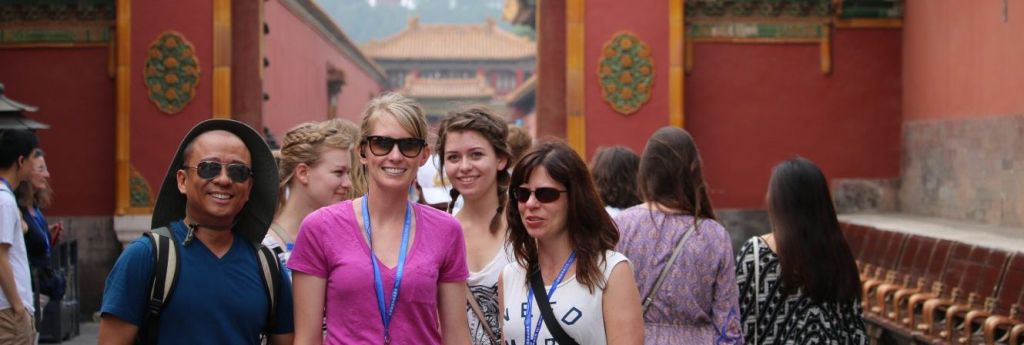
ALUMNI ASSOCIATION
A great way to stay in touch with everything we are doing
and to find out how you can get involved.
ALUMNI STORIES
San Diego Youth Symphony and Conservatory’s Alumni Association is a great way to stay in touch with everything we are doing and to find out how you can get involved. If you are just coming back to check on us, please tell us what you have been up to, we love sharing stories about our alumni with current students and friends.
We will fill you in on what other alums are up to, the latest SDYS news and upcoming alumni events. Your information will be kept strictly confidential.
Take the SDYS Alumni Survey Join the SDYS Alumni Facebook Group
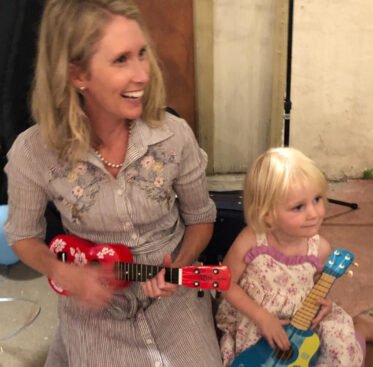
Megan Matthew

Megan Matthew
Three Generations of SDYS Family

Megan, what did you do following your time at SDYS?
Megan: I attended University of North Carolina at Chapel Hill and at first majored in violin performance. After a year, I decided to pursue journalism and mass communication, with a focus on public relations and a minor in music. I love telling stories and shaping how a message is communicated. However, music is essential to who I am, so I combined my passion with my profession and now volunteer my PR prowess for the arts and nonprofit work. After returning to San Diego, I played with the University of San Diego Community Orchestra for a few years and dusted off the ole violin when I traveled to China with other SDYS alums on the 2015 tour. What an adventure!
What are you up to now?
Megan: I help tell the story of the Family Houses at UC San Diego Health, a small nonprofit that helps families with a loved one in long-term or critical care at UC San Diego Health. The families that I meet and the stories they tell are inspiring and remind me to be grateful for every moment. I also run around after my four-year-old, Grace, and try to keep up! I’m proud to say that I am now a San Diego Youth Symphony parent since attending a ChIMES session with my daughter. She sometimes tries to use her toy ukulele as a violin which makes her mom proud. I look forward to enjoying music with her, as well as my experiences at San Diego Youth Symphony, as she grows up.
How has music influenced you?
Megan: Music has opened doors for me. From introducing me to long-ago composers in distant lands, to giving me my first job… I am where I am today because of music. It has been a thread that connects all parts of my life. My childhood was filled with New World Symphony playing loudly while we had pancakes on a Sunday morning. I single-handedly credit the Bruch violin concerto with getting me into college. When I got married, I walked down the aisle to Saint-Saëns’ The Swan, and waltzed with my dad to Tchaikovsky’s Sleeping Beauty. I remember visiting my sister in Prague whenever The Moldau by Bedrich Smetana is played. When my daughter was born, Chopin was playing in the background. It’s amazing to me the power that music has in transporting me back to another time in my life. Music defines me and has defined my life. It has given me direction. It has introduced me to so many new and wonderful friends. And it took me places I never expected.
How has your experience on the board been so far?
Megan: It’s been an eye-opening experience, getting to know the organization again because it feels new. [There are so many] different types of music that I never thought the symphony was involved with, like jazz or conducting or music theory.
Dennis, what was your experience like?
Dennis: [I served] from 1997-2008. Back then, the organization was smaller than it is now and members of the Board were primarily, if not exclusively, parents. During that time, I saw a lot of transition. It went from this parent Board to a more functioning Board in the traditional sense of not-for-profit. More people in the community started coming on Board, and Jeff Edmons came on as the Artistic Director. I think about the same time Angels’ Angels was organized. It was a very interesting time and it was exciting to be part of that. I was also thrilled to be a stand-in volunteer when they needed someone to play the jingle bells at a holiday concert.
Megan, as an alum how do you bring a different perspective to the board?
Megan: It is definitely a different perspective, and one that I am grateful for. The organization has grown and morphed into this bigger idea. I don’t know if there are many other Board members that played music as a child or have seen the organization grow throughout the years. And it’s interesting being part of an organization that’s 75 years old! This organization is near and dear to my heart and it feels like a family member almost. I feel like it’s just always been part of my life.
What are your goals for the Alumni Association?
Megan: I think a lot of alums are a little intimidated to join the Alumni Association because they think, “Oh my gosh, I don’t practice anymore”. I want to share the message that it’s okay. Music can still be a part of your life even if you’re not a professional musician or practicing all the time. I don’t want this Association to be intimidating. It’s not meant to be, it’s just supposed to be fun, a place for alumni to come back together, reconnect with old friends and share memories.
Dennis: There’s a lot of people and most students [that] don’t go on to be professional musicians, but what the organization does, it provides a framework for learning some really good lessons that you picked up through your music. Music can still be part of your life whether it’s listening to music or playing music. You know, all those things are really benefits to being a participant in SDYS.
What role does music play in your life now?
Megan: With [my daughter] Grace, I’m really trying share my love of music with her. [We’ve been] getting her involved with ChIMES and other classes like that and playing music here in the house a lot. Mostly, listening to music and being part of the board is what I’m able to give right now, but I do always dream! One day I want to go back and take lessons and be part of a community orchestra again. Because, now as an adult looking back, I can see that even though solo practice (while critical) wasn’t always my favorite activity, I always looked forward to going to rehearsal at SDYS to meet friends and connect through playing together. I want to be part of something like that again, at some point!
Dennis: In junior high, I played the cello for a while, and then when Megan started playing violin, I thought that I would go back to playing cello and we could play duets. I retired as of the first of the year [2020] and one of my goals was to go back [and learn to play].
Do you have a special memory enjoying music as a family?
Dennis: I’ve always enjoyed listening to Megan play. For my 70th birthday [last year], she hired a bluegrass band to play. All of my closest friends and family were there, alongside delicious Southern-style cooking, and Megan played the fiddle with the bluegrass band. Oh, it was great!
Megan: It was super fascinating for me to play with that bluegrass band. I play one or two fiddling songs, but I still have to read music. When I talked to these bluegrass guys, [I learned] they don’t read music! They kind of riff, it’s like jazz almost. I made a few mistakes, but it was such a blast. My daughter got a big kick out of seeing her mom up there with the band!
How does it feel to see your daughter start her journey with music?
Megan: You know, I want to be careful because [the violin is] something that I chose for me. In third grade, they introduced the violin to us at school. And I’ll never forget, I went up to my Mom and I said “I want to take violin lessons”. I pushed for it. With Grace, I want to show her what I think is really cool, but at the same time I want to respect her as an individual. If she wants to take up surfing or something like that, which I have no idea how to do, I want to support her in that too. In my role as a parent, I just want to expose her to all of my joys and things that I’m passionate about. If she wants to pursue it, then I’ll support that. And if not, that’s okay.
Dennis: I am very proud of Megan and all that she’s achieved. [She’s] staying involved with youth symphony, realizing how important it was to her and what she’s gained from that organization. But more importantly, she recognizes the importance of giving back and staying involved. I’m very proud.
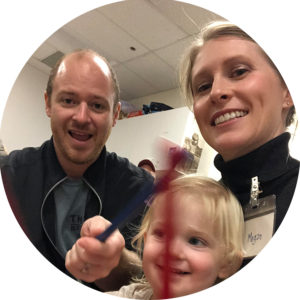
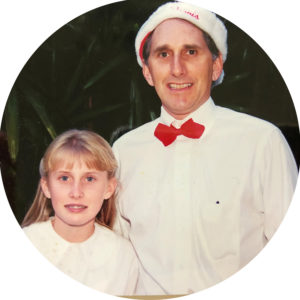
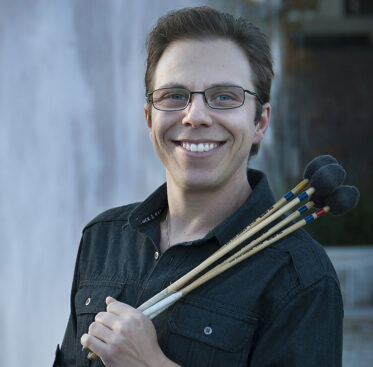
Daniel Pate

Daniel Pate
Percussion Alumni
Being a musician has been one of the most deeply rewarding choices I have made. Music has a way of becoming the cornerstone to every single important moment that we live.
What did you do after SDYS?
I was lucky enough to be able to still play with the Youth Symphony throughout much of my undergraduate years at San Diego State University. I left San Diego originally to pursue my master’s degree in percussion at the University of Massachusetts Amherst where I specialized in contemporary music performance. I later returned to San Diego to work as a freelance musician and percussion instructor at several high schools in San Diego County.
What are you up to now?
I have just completed my DMA from Stony Brook University and I am now the Percussion Department Coordinator at the Juilliard School of Music as well as a freelance musician currently performing with “Swarmius” and “DNA” percussion duo. I work to be as active as I can in the research side of our art form by serving on the steering committee of the New York City Electro-Acoustic Music Festival and have had several articles featured in the Percussion Arts Society’s “Percussive Notes” magazine.
How has music influenced you?
Being a musician has been one of the most deeply rewarding choices I have made. Music has a way of becoming the cornerstone to every single important moment that we live. For me, performing music is a chance to create lifelong memories; rather than revisiting memories that I cherish through other means like pictures and video, I revisit pieces that I performed with people that I deeply care about. When I do this, I’m not thinking about the notes or the dynamics, but rather the late night rehearsals, and the feeling of energy and excitement of being on stage.
What did you learn from your days at SDYS?
How to listen to the musicians around you and play, not as an individual performer, but as part of something much bigger. The skill of performing with others is such a big element to being a musician that can’t be replicated by playing along with recordings and going to concerts. Not only are your listening skills sharpened within an ensemble, but you also learn that preparing your part for performance is much more important because everyone is relying on you to play at your best.
What role does music play in your life now?
Music is and will always be a constant in my life and has been the catalyst for me to explore other art forms. I like to think of myself as a perpetual student and with music there is always something new that can be learned. One thing I’m extremely excited about now is the commissioning of new works by composers that I love and helping them realize their works through performance.
What advice can you give to young musicians?
While practicing and perfecting your instrument is of course important, it is but one component to becoming a musician. To truly become an artist, it is important to enrich yourself through travel, visual art, literature, and other life experiences so that these experiences enrich the music that you perform.
Is there anything else you’d like to share?
Cherish the time and the music that you are making at this moment with these people. These moments will live with you the rest of your life and you will re-live them every time you set foot on stage to perform these works.
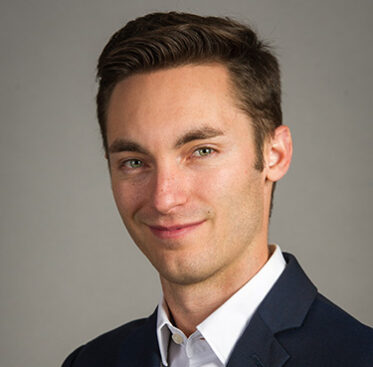
Enrico Lopez-Yañez

Enrico Lopez-Yañez
Trumpet
“One thing I have learned in my journey is that the people around you are not your greatest competition but in fact your greatest asset.”
What did you do in the years immediately following your time at SDYS?
After graduating, I pursued my bachelor’s and master’s degrees in trumpet performance at UCLA. I then transitioned into conducting and pursued my master’s degree at the University of Maryland in orchestral conducting.
What are you up to now?
I am currently the Assistant Conductor of the Nashville Symphony, a position I previously held with the Omaha Symphony for two seasons. I lead over 50 performances annually on the Symphony’s Pops, Education, and Family Series. I feel very fortunate that I have had the opportunity to conduct performances with artists of all genres. This season, for example, will include performances with Kenny Loggins, Megan Hilty, Jennifer Nettles, The Marcus Roberts Trio, and Priscilla Presley to name a few.
How has music influenced you?
I have been exposed to music since my early childhood so it is difficult to think of ways in which music hasn’t influenced me. What I can say is that whether or not you end up pursuing music professionally, there is always room for music in your life and it will inevitably make it better. You could play in a community orchestra, form a small ensemble or band, or simply attend and support your local symphony. Regardless, having music in our lives connects us to others and makes us better people.
What did you learn from your days at SDYS?
SDYS taught me a lot about the dedication required to be a professional musician and successful adult. It pushed me to maintain extremely high standards in my music making which directly translated to other aspects of my life. I learned a great deal about time management by finding ways to balance my academics with my practice needs, a skill that was essential in order to keep up with my peers both in school and the ensemble.
What role does music play in your life now?
Music is at the center of my daily life. Living in Nashville (Music City) and working for the symphony means that the bulk of my daily interactions and activities are in some way related to music. It seems like there isn’t a single block in the entire city where you can’t come across live music to listen to, which I absolutely love. It also means endless opportunities for inspiration and interesting collaborations. Beyond that, all of my deepest friendships have been forged through or around music. Music truly does have the power to connect us to others in a way that language and other forms of expression often cannot.
What advice can you give to young musicians?
My advice is to always be as well rounded a person as possible. You should constantly strive to grow yourself in every aspect of life. Inspiration for music comes in many forms. The ability to express different emotions grows out of having experienced different things. So learn about art, history, and politics; develop your public speaking skills, your ability to work with others, and your ability to think creatively. Every experience in life and every opportunity to learn and grow as a person can in some way shape your music making.
Is there anything else you’d like to share?
One thing I have learned in my journey is that the people around you (your colleagues) are not your greatest competition but in fact your greatest asset. You never know where they will end up and how you might be able to help each other down the road. So, with that in mind, always treat the people with whom you work with respect. You never know who might be willing to recommend you for a job or be interested in collaborating on a project in the future so keep every door open.
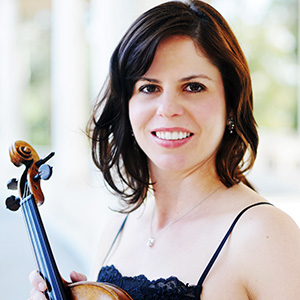
Victoria Bietz

Victoria Bietz
Violin
“My SDYS experiences shaped me as a person and ultimately paved my decision to major in violin performance.”
What did you do after SDYS?
After SDYS I went to SDSU for 2 years and starting subbing with San Diego Symphony. I then transferred to UCLA to study with Mark Kaplan where I majored in Violin Performance. While in Los Angeles I played with American Youth Symphony and Debut Orchestra. For my Master’s in Violin Performance I went to The Boston Conservatory and studied with Joseph McGauley of the BSO. While in Boston I played many off-Broadway shows and played in regional orchestras in nearby states.
What are you up to now?
After I graduated, I moved back to San Diego in 2005 and have been working as a freelance musician ever since. I have played shows at La Jolla Playhouse and The Old Globe; I continue to sub with San Diego Symphony and San Diego Opera; I play in Classics for Kids, California Chamber Orchestra, among other groups. With my group Avonlea Strings, I play many weddings and private events across San Diego and Orange County. In addition to performing, I teach over 20 students in my private violin studio with ages ranging from 4 to 65.
What advice can you give to young musicians?
Practicing is just one small component of the music world in which we live. Many connections and friendships you have when you are in SDYS will be important and enriching to your music career for decades to come. Try to look at the big picture and not get caught in the small stuff like who sits where and what happened at the last audition. The reason we play our instruments is to play beautiful music together. I still remember clearly the friendships and the magical feeling I had when I played my first symphony at age 11. Tchaikovsky Symphony No. 5 will continue to hold a very special place in my heart.
You were invited to join SDYS on its 70th Anniversary China Tour. What was your most memorable moment from the China Tour?
I was honored to be asked to join the orchestra on the China Tour. It was wonderful to spend time with Mr. Edmons and reconnect with the other alumni, as well as meet all the young and talented students of SDYS. There is one memory from the trip in which stands out from the rest. There was a lot of time between a certain rehearsal and concert so a couple students started playing repertoire from the concert without music. Over a short period of time the group got larger and larger and by the end, almost every member of the orchestra was playing along. It was amazing to see how well every section knew their parts, and how they played together without a conductor! This little snapshot showed me how much the students loved making music together and what a great appreciation for music Mr. Edmons has given each of us.
What did you take away from the China Tour?
The people we met and the audiences we played for absolutely loved our music. Even though we come from very different types of governments and countries, the love for music is universal. The packed concerts and the way the Chinese government took care of us during our stay was wonderful to experience. The concert halls we played in were amazing, as were the schools we visited. At the advanced music school we enjoyed a wonderful concert performed for us on traditional instruments. Seeing the Chinese students play their instruments with such mastery and dedication was truly inspiring.
What did you learn from your days at SDYS?
I grew exponentially as a musician during my 10 years with the SDYS organization. When I was 8 years old I started playing in the back of the 2nd violins in “Prep Orchestra,” to then become the youngest member of the “Big Orchestra” at 11 years old. When I joined I would have never imagined I would have the privilege to be Concertmistress for three years. Practicing hard and being exposed to great composers such as Mahler, Tchaikovsky, Sibelius, and Beethoven expanded my music world at such a young age. I was able to travel to Sun Valley, Idaho, Spain, Canada, and Eastern Europe with all the orchestra tours. My SDYS experiences shaped me as a person and ultimately paved my decision to major in violin performance. Without my decade of experience with SDYS I am certain I would not have found the love for the violin and made my life all about music.
Is there anything else you would like to share?
I still remember when we, the orchestra and the board, chose Mr. Edmons for the conductor position. We had had a rough couple of years without a steady conductor and without a vision for the future. The orchestra was divided and needed a strong force to bring us together again. It makes me very happy to see how the organization has grown and how over the past 20 years Mr. Edmons has made SDYS a genuine conservatory, by expertly preparing motivated students for careers in music.
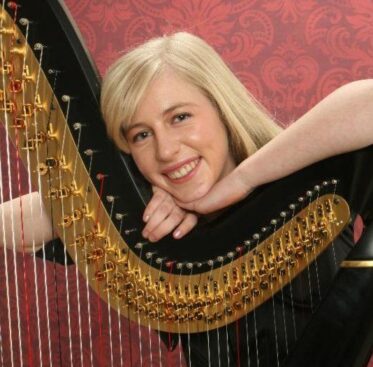
Sophie Graf

Sophie Graf
Harp
“The point of an orchestra is to explore all of the rich textures available in classical music. You, as an individual instrumentalist, are just one texture in this vast array.”
We recently caught up with Sophie Graf, a harpist and SDYS alum from 2010 – 2012. A current junior at Duquesne University, learn more about her recent award win, her recommendations for current SDYS students and her favorite memories from her time with SDYS.
What are you up to now?
Right now I am a junior studying for a degree in harp performance at Duquesne University in Pittsburgh, PA. At this point I hope to get a master’s in harp performance and then to hopefully become an orchestral harpist.
Recently, the American Harp Society (AHS) named you as one of its 2014 Anne Adams Awards winners, which includes a $2,000 scholarship for full-time study of the harp. What’s a highlight from that exciting day?
One of my favorite parts about winning was being led into the exhibit hall where each of the harp makers had brought harps to display and sell. As a winner, I was allowed to choose any harp there to play at the winners’ recital – I chose a lovely, natural concert grand harp.
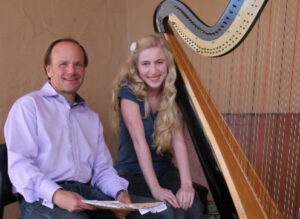
SDYS Music Director Jeff Edmons coaching Sophie Graf for her AHS Adams Awards performance
Any recommendations for current SDYS musicians?
Learn to become part of the group. As a solo harpist coming from a piano background, I was not used to playing with other people at all. It was a huge adjustment for me to learn to sit there counting 186 bars of rests before playing for four bars (no joke, this actually happens in harp parts). Now with four years of orchestral playing under my belt, I have come to love listening to all of the incredible musicians around me while I am not playing. The point of an orchestra is to explore all of the rich textures available in classical music. You, as an individual instrumentalist, are just one texture in this vast array. Each instrument plays an important role in the orchestra, but that role is not to play the most notes (well, unless you are a violinist) – it is to provide your unique color when it will best contribute to a piece as a whole.
Anything else you would like to share?
My short time playing with SDYS (2010-2012) has already been helpful repertoire-wise. This coming school year we will play Shosty 5 and Pictures at an Exhibition, both of which I first played with SDYS. I have to audition with excerpts from them when I get back to school and having already played them is making it a lot easier! Last year we played the Carmen Suites, which I had already played with the Sinfonia.
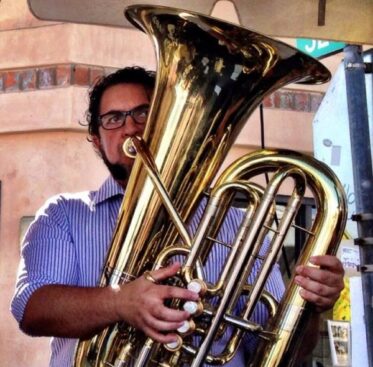
Jonathan Piper

Jonathan Piper
Tuba
“One of the strongest lessons I learned from SDYS was personal responsibility. Show up to rehearsal on time, fully practiced, and ready to focus for however long the group needs you.”
It’s the holiday season and to kick it off, we sat down with SDYS alum Jonathan Piper, education manager for La Jolla Music Society, to learn more about his jug band, how music keeps him sane, why not to borrow a friend’s euphonium and more! Have a safe and happy holiday season and look for more great alumni content in the New Year!
What did you do after SDYS?
After high school and SDYS, I attended UCLA for a BA in Music Performance, studying with legendary tubist Tommy Johnson. There, I pursued numerous performance opportunities – wind ensemble, orchestra, brass quintet, brass choir, duos, solos, etc – and became very interested in both music theory and music history. I ended up writing a senior thesis, supervised by members of the Musicology faculty, on listening strategies in contemporary music. Based on my interests in contemporary music and theory, I pursued an MA and then PhD in the UC San Diego Music Department’s Critical Studies/Experimental Practices program. This program allowed a fairly wide-open approach to the study of music, including performance, musicology and ethnomusicology. I ended up focusing on popular music for both my thesis and dissertation, with a hefty dose of experimental music performance thrown in.
How has music influenced you?
Music has directly influenced me in myriad ways, as you can imagine. On a fairly basic level, I make music in some form just about every day – singing, practicing the tuba, rehearsing with my jug band, or just playing with a group of friends. These are more than “just music;” they’re all rich activities. Singing calms me down, cheers me up, or lets me be goofy. Practicing gives me focus and a strong sense of accomplishment. Rehearsal is an intense social process that gets me outside of myself. Music keeps me sane, it keeps me social, and it keeps me going. It might be a bit of a cliché, but I’m really not sure what my life would be like without music.
What are you up to now?
Post-PhD, I work as the Education Manager for La Jolla Music Society, one of the premier performing arts presenters in Southern California. Our concert series feature world-renowned soloists, chamber ensembles, orchestras, dance companies, and a variety of incredible performers who don’t fit neatly into any category. We also produce SummerFest, a three-week chamber music festival in La Jolla every August. The festival brings musicians from around the world for an intense period of rehearsing and concertizing. My work centers on the educational offerings that supplement our performances: master classes and coaching workshops for both music and dance, in-class performances around San Diego, pre-concert lectures, and open rehearsals. We also manage the Community Music Center, a free afterschool music program in Logan Heights. Students who complete the CMC curriculum get to keep their instruments, making it unique among similar programs in the region.
How does the La Jolla Music Society and SDYS work together?
LJMS and SDYS work closely to provide amazing opportunities for San Diego’s young musicians. Many SDYS students are selected to perform in master classes with our visiting musicians. Recently, Sofia Hashemi-Asasi was coached by Frederikland of the Danish String Quartet, and Austin Su participated in a master class with Branford Marsalis. SDYS students are also invited to many of our performances free of charge so that they can experience the work of the world’s most amazing musicians. Winners of SDYS’ solo competitions are selected to perform before our Discovery Series concerts and as featured guest at CMC recitals. Finally, a select number of students from the CMC are given tuition-free scholarships to participate in SDYS programs. We’re working to make our partnership even more valuable for San Diego’s wonderful community of student musicians.
What is one thing you learned from your days at SDYS?
One of the strongest lessons I learned from SDYS was personal responsibility. Show up to rehearsal on time, fully practiced, and ready to focus for however long the group needs you. Get to concerts and other events early enough that you’re ready to perform your best before the first downbeat. And one I learned the hard way, make sure your instrument is in perfect working condition every time. More specifically, don’t borrow a friend’s euphonium to play the “Bydlo” solo in Pictures at an Exhibition and then blame the instrument every time the valves stick. An instrument problem quickly becomes a problem for you, and a problem for you quickly becomes a problem for the rest of the orchestra. Respect the instrument, respect yourself and respect the ensemble.
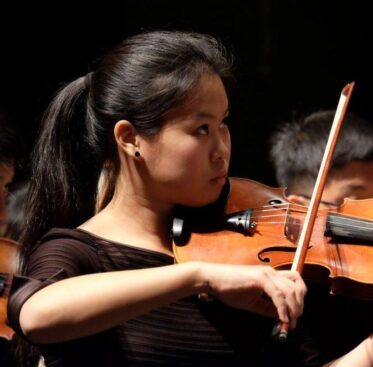
Flora Li

Flora Li
18 Yrs Old | Violin
“I love music because it is a way for me to express my feelings freely. I have been involved in musical activities for over half of my life, and it has become a part of me.”
In case you haven’t heard, San Diego Youth Symphony is touring China this summer! The Beijing concert will be at the Forbidden City Concert Hall, home of the China Philharmonic, as the kickoff to its annual summer youth music festival. In Yantai, we will perform two concerts at the invitation of the local government to deepen ties between our two cities. Shanghai’s performance will be in the amazing Oriental Arts Center on July 4th and serve as the culmination of the tour. In the first part of our China Tour Interview Series, we spoke with current SDYS Concertmistress (2014-15), Flora Li, to see what she is looking forward to, her love for music and future plans.
What are you most excited about for the SDYS China Tour this summer?

Alex Wong

Alex Wong
Viola
“It’s always amazing to me that no matter where you’re from or what language you speak, music is universal.”
This month we were thrilled to find out that Alum Alex Wong is interning at VH1 Save The Music Foundation whilst studying for his degree at NYU. SDYS began a partnership with VH1 Save The Music Foundation and Chula Vista Elementary School District last year to provide instrument grants to schools that hire a full time music teacher.
Read our interview with Alex below to find out about his studies, performance highlights at NYU, SDYS memories and his musical ambitions.
What have you been up to since leaving SDYS? Are you still studying and performing music?
After I graduated high school, I moved to New York to study at New York University. I am currently a senior at NYU receiving my Bachelor’s Degree in Viola performance. I study with Karen Ritscher and Stephanie Baer who have both been phenomenal role models and mentors during my time in the city. Outside of school, I perform regularly around the city doing as many freelance performances as I can.
What’s been a highlight of your studies at NYU?
One of the many highlights, besides the incredible staff and students, is the amazing performance opportunities. During my time at NYU, I have played in multiple pit orchestras for musical theater and opera productions as well as performing symphonic and chamber works in some of the greatest halls in the country. Most recently, I performed with Paul Simon at the Beacon Theater at the Steinhardt School Gala Event. It was such an honor to perform on stage to a cheering crowd with a musical legend.
Tell us about what you’re doing at VH1 Save The Music Foundation? What attracted you to work at the Foundation? Have you been working on the partnership with SDYS’ Community Opus Project?
At the VH1 Save The Music Foundation, we are working to fundraise money to support music education around the country. Our next fundraising event is the VH1 Save The Music Honors in the Hamptons where we will honor individuals who have used their influence to support music education. Last week, I visited a Save The Music grant recipient elementary school in Queen, NY. It was incredible to see the joy in the faces of the students as they performed on stage for their peers. It reminded me why I play music and why it’s so important for every child to experience.
How has music education changed your life?
I like to think of myself as a “product” of what the Save The Music Foundation has to offer. I began playing violin through my public elementary school music program and found my love for music there. My passion for music has taken me across the country and around the world to perform with some truly amazing musicians. I think it’s unfair to say that music “changed” my life, because my life has always been music.
What is your favorite SDYS memory?
I will ALWAYS remember my summers with the International Youth Symphony. To this day, I am still in contact with many of the musicians I met, even though I haven’t seen some of them in 5 years. It’s always amazing to me that no matter where you’re from or what language you speak, music is universal. I had no idea who any of the international students were, but the fact that we could all come together regardless of age, nationality or language barrier to play music always inspired me.
What are your hopes for the future?
My future plans had always included graduate school at a conservatory. I will be applying in the fall and have been practicing all summer to prepare! Auditions are always so stressful and having my job at the Save The Music Foundation has been a great outlet and a wonderful experience. My dream would be to form a string quartet to perform professionally or to play in a professional orchestra.
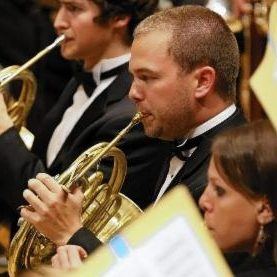
Greg Hix

Greg Hix
Piano, French Horn
“Working personally with him (Yo-Yo Ma) was sort of a trip to be honest. His brain is always, ALWAYS thinking of how to tweak musical ideas- whether it was phrasing, dynamics, seating, dress etc. He seems to exist a few seconds in the future at all times.”
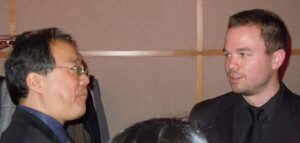
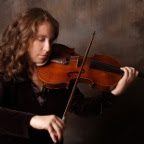
Tanya Solomon

Tanya Solomon
Violin
“My advice to younger musicians is to learn how to play (and get along) with a section. This skill helps you learn to work with others, which is helpful in whatever career you choose.”
Continuing our Alumni Spotlight series, we spoke with Tanya Solomon, a former SDYS violinist from the 1990’s, to see what she is up to today.
The San Diego Youth Symphony and Conservatory was a great place to be able to play music with other kids my age, although I’m sure it was my parents’ decision at that point. And I made a lot of friends! My happiest memory of SDYS was our Spain Tour. I uploaded photos from the tour onto our SDYS Alumni Facebook group – check it out!
After SDYS, I attended Oberlin Conservatory (Bachelor of Music in Viola Performance), Northwestern University (Master’s of Music in Viola performance) and then was a violist in orchestras for many years. I now teach violin and viola privately and perform in the Slapin-Solomon Viola Duo with my husband.
Music has enriched my life by introducing me to a lot of interesting people and traveling to many countries…something I may not have been able to do otherwise. I’ve made several recordings, mostly with my husband as a viola duo, as well as a recording of the Bach Cello Suites on viola. We both teach privately in Western Massachusetts and online worldwide via Skype.
My advice to younger musicians is to learn how to play (and get along) with a section. This skill helps you learn to work with others, which is helpful in whatever career you choose.
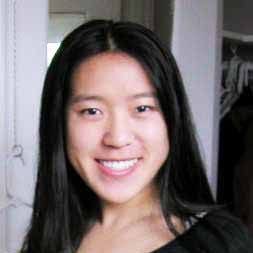
Janet Hwu

Janet Hwu
Violin
My musical upbringing taught me diligence and patience. Also, it helped me put fear into perspective, as nothing is as scary as playing solo in front of a large group of people.
What did you do after graduating high school and SDYS?
I attended Stanford University. At Stanford, I joined and toured Thailand in a taiko, or Japanese drum, ensemble and majored in Product Design. While in college, I entered a design competition that led to my current job as a production designer at Walt Disney Imagineering. Right now, I’m preparing for an October relocation to Shanghai for two years to build a new Disneyland there! What a ride it has been.
Has your musical experience influenced you in any way?
My musical upbringing taught me diligence and patience. Also, it helped me put fear into perspective, as nothing is as scary as playing solo in front of a large group of people.
If you aren’t busy at Disney, what do you do in your spare time?
I play taiko occasionally and I swing dance.
How has music enriched your life?
It gave me an appreciation for the arts and for history.
If you could tell a young SDYS musician one thing you learned while participating in SDYS, what would you tell them?
Don’t play loudly when you’re playing it wrong. Don’t over-rosin your bow. And win points with your stand partner by writing in excellent fingering notes!
What is your happiest moment from SDYS?
Playing Scheherazade in concert at Copley and walking around Balboa Park with friends during rehearsal breaks.
Ok, be honest – what’s your least favorite memory?
When Mr. Edmons went one-by-one down the line of first violinists to find out who could really play the third movement of Tchaikovsky’s Pathetique Symphony.
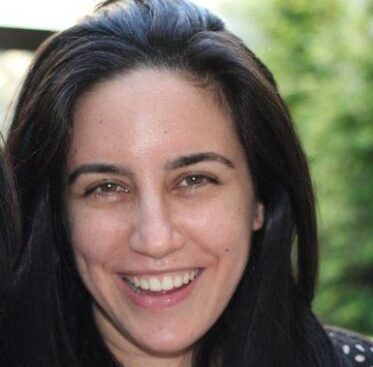
Jessica Reinis

Jessica Reinis
Flute
“I adored playing Principal Flute in SDYS my senior year of high school. There was a lot of pressure with college applications and conservatory audition tapes, but leading the flute section was my fantasy all through high school and I had to pinch myself that whole year when it finally became a reality.”
We sat down with Jessica Reinis, a flutist who played with the San Diego Youth Symphony (SDYS) Philharmonia and the Symphonic Orchestra from 2000 to 2005, to see what she’s been up to since she graduated. Continue reading to find out her favorite SDYS memory, her experience at CNN and ABC News in New York City, and her tip to current SDYS members.
Share your favorite memory of playing with SDYS?
Ahh! It’s so hard to pick. I loved performing on stage at Copley Symphony Hall. My senior year it was such a thrill to lead the flute section. In college, my sophomore year I played at Weill Hall (part of Carnegie Hall) in New York and I remember playing Copland in this very exposed section and imagining I was back in San Diego onstage at Copley so it wasn’t so scary. It worked! The performance was great.
What did you do after graduating from SDYS?
I attended Barnard College at Columbia University in New York and graduated in 2009 with a degree in Political Science. While at Barnard, I was part of a joint program with the Manhattan School of Music where I took flute lessons with Linda Chesis for three years and also performed in Columbia’s orchestra.
We hear you work in television news as the Senior Administrative Assistant to CNN anchor Erin Burnett. What’s that like?
As Erin’s assistant, I manage her schedule, expenses and travel and also help her with research for big interviews. I have traveled with her for breaking news to help her book guests in the field for her primetime show. In my spare time I write articles for Erin’s CNN blog. Check it out at outfront.blogs.cnn.com. I’ve also booked big sit down interviews for the show with Maria Sharapova and Shawn Johnson.
When I graduated from Columbia, I started working full time for ABC News, first as a teleprompter operator on the set of Good Morning America and then as the Production Coordinator and Assistant to the Executive Producer of their breaking news department, Special Events. I fell in love with television mainly because of the adrenaline rush that I got when news was breaking. That nervous and exciting energy reminded me a lot of how I felt onstage during a musical performance.
What’s the coolest project you worked on while at ABC?
At ABC, I helped produce the live coverage of the Royal Wedding and the election. I also did red carpet reporting.
How has music enriched your life?
The flute got me to New York. I definitely think it set me apart and helped me get into college. I also probably would have never worked in network news. I still spend most of the day listening to Brahms and Tchaikovsky and dissuade my colleagues from picking Taylor Swift for the background of their television segments.
If you could tell a young SDYS musician one thing you learned while participating in SDYS, what would you tell them?
Take a quiet moment on stage, especially if you’re at Copley Symphony Hall, before a big performance. Look at the orchestra warming up around you and out at the audience. Take a deep breath and soak it in. If you don’t end up being a professional musician, that high energy flashbulb moment will be one that you remember for the rest of your life. It’s a supportive environment with your friends and family in the audience and a wonderful mentor, Mr. Edmons, out there with you. It’s something to cherish and remember.
What is your happiest moment from SDYS? What’s your worst memory?
I adored playing Principal Flute in SDYS my senior year of high school. There was a lot of pressure with college applications and conservatory audition tapes, but leading the flute section was my fantasy all through high school and I had to pinch myself that whole year when it finally became a reality. I was pretty proud. I lived about an hour away from Balboa Park so I always worried that I would be late to rehearsal. I remember traffic being bad on the way to Monday night sectionals and thinking ‘oh god… they’re going to kill me!’ But we somehow always made it without a speeding ticket. I’m very much indebted to my parents who always drove me to rehearsals and back home.




